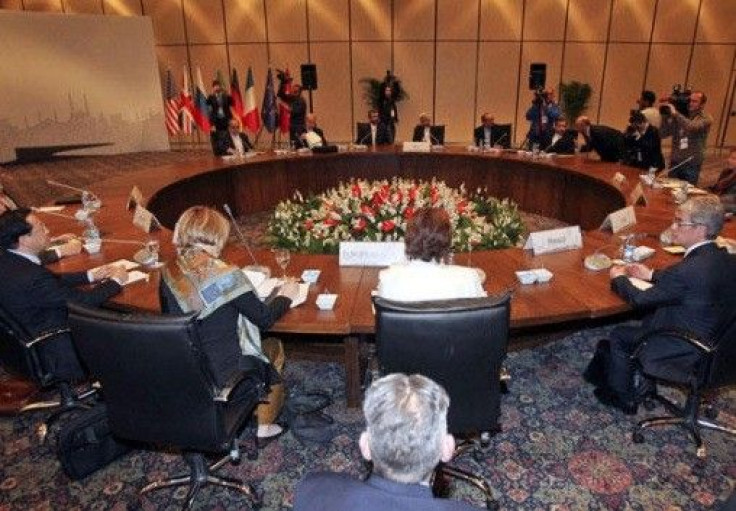Iran Agrees To Resume Nuclear Talks Next Month In Moscow

Negotiations on nuclear issues between Iran and six world powers ended Thursday, with the Islamic Republic agreeing to meet again on June 18 in Moscow.
The talks between the permanent U.N. Security Council members plus Germany (the P5+1) ended in Baghdad after two days of tough negotiations surrounding Iran's alleged nuclear weapons program. Iran threatened to walk out following the P5+1's refusal to scale back economic sanctions.
Catherine Ashton, the European Union's foreign policy chief who had met with Iran's chief negotiator Saeed Jalili in Baghdad, cautioned that significant differences remained between the two sides.
Perhaps the most difficult problem the West faces is Iran's insistence that the right to uranium enrichment (a key process in the manufacture of nuclear bombs) is non-negotiable.
According to reports, representatives of the six world powers who met with Iran offered, among other things, medical isotopes and advice on nuclear safety, in exchange for the Iranians ceasing their 20 percent uranium enrichment program.
Having held in-depth discussions with our Iranian counterparts over two days ... it is clear that we both want to make progress, and that there is some common ground, Ashton said in a statement released by the EU.
However, significant differences remain. Nonetheless, we do agree on the need for further discussion to expand that common ground.
Iranian media complained the proposals by the six world powers were not balanced.
Jalili's counter-proposals were not revealed, although earlier reports indicated that Iran is eager to persuade the United States and European Union to ease sanctions on its oil sector, which props up the whole economy.
Iran has repeatedly insisted its atomic energy endeavors are focused purely on peaceful purposes, although the U.S., U.N. and Israel do not accept this as reality.
Israel, which regards a nuclear-armed Iran as a grave threat to its very existence, has warned it will take military action to destroy Iranian nuclear facilities should diplomacy and sanctions fail.
© Copyright IBTimes 2024. All rights reserved.











